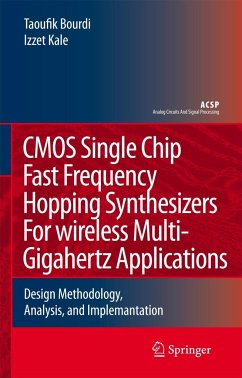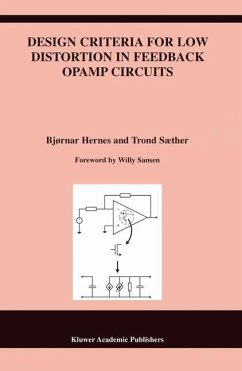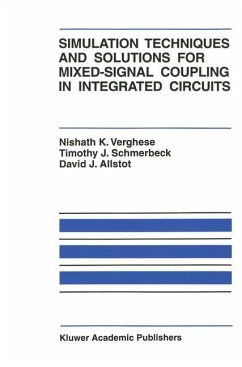
Automated Calibration of Modulated Frequency Synthesizers

PAYBACK Punkte
19 °P sammeln!
In recent years, there has been considerable interest in highly integrated, low power, portable wireless devices. There are three primary areas to be addressed when higher performance and lower power is desired. The first area is the device technology. Scaling of devices has realized steady improvements for many years. The second area is improved circuit design techniques. The final area is at the architectural level. This monograph focuses on the problem of low power GFSK/GMSK modulation and presents an architectural approach for improved performance. The new architecture is a modulated S-D f...
In recent years, there has been considerable interest in highly integrated, low power, portable wireless devices. There are three primary areas to be addressed when higher performance and lower power is desired. The first area is the device technology. Scaling of devices has realized steady improvements for many years. The second area is improved circuit design techniques. The final area is at the architectural level. This monograph focuses on the problem of low power GFSK/GMSK modulation and presents an architectural approach for improved performance. The new architecture is a modulated S-D fractional-N frequency synthesizer. The key innovation is an automatic calibration technique, which operates in the background. The availability of the calibration circuit makes high data rate, low power modulation possible.
From the Foreword: "The key contribution of the work presented in this monograph is a technique for in service automatic calibration of the modulated frequency synthesizer by ensuring that the digital emphasis filter and analog loop filter characteristics are matched. The automatic calibration circuit operates while the transmitter is in service and compensates for process and temperature variation. GFSK and 4-GFSK modulation was demonstrated at data rates of 2.5 Mb/s and 5 Mb/s respectively at an RF output carrier frequency of 1.8 GHz. ... In addition, he presents some valuable tools for the practicing engineer in this field." by Charles G. Sodini
From the Foreword: "The key contribution of the work presented in this monograph is a technique for in service automatic calibration of the modulated frequency synthesizer by ensuring that the digital emphasis filter and analog loop filter characteristics are matched. The automatic calibration circuit operates while the transmitter is in service and compensates for process and temperature variation. GFSK and 4-GFSK modulation was demonstrated at data rates of 2.5 Mb/s and 5 Mb/s respectively at an RF output carrier frequency of 1.8 GHz. ... In addition, he presents some valuable tools for the practicing engineer in this field." by Charles G. Sodini














